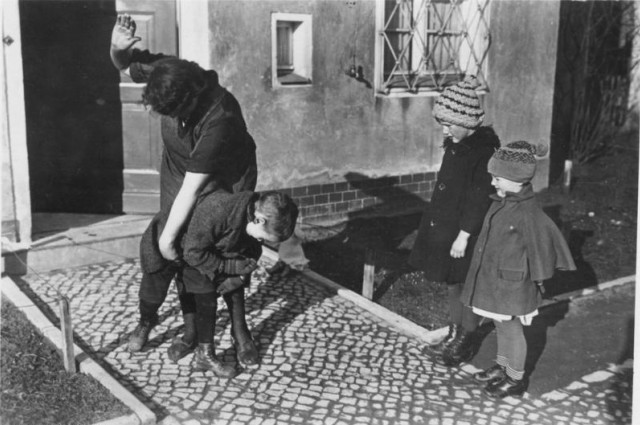The appropriateness of spanking as a parental disciplinary technique arouses passionate debate. But a new meta-analysis of five decades of research suggests that, in addition to the psychological effects on children, there may be a large price to pay for the parents.
Measuring the effects of spanking has proven difficult, not only because so many people come to the topic with unmovable opinions, but because spanking is often accompanied by other forms of physical punishment, and many studies do not distinguish these sufficiently for conclusions to be drawn about spanking alone.
In the Journal of Family Psychology, Dr. Elizabeth Gershoff of The University of Texas at Austin brings together studies of the effects of spanking that included a total of 160,927 children. "Our analysis focuses on what most Americans would recognize as spanking and not on potentially abusive behaviors," Gershoff said in a statement. Spanking was defined as an open-handed slap to the buttocks or limbs.
Gershoff concluded that there is an association between spanking and 13 of the 17 detrimental outcomes they tested for. Most strikingly, she found that it is a very ineffective way to get children to follow parents' wishes.
"We found that spanking was associated with unintended detrimental outcomes and was not associated with more immediate or long-term compliance, which are parents' intended outcomes when they discipline their children," Gershoff said.
On top of this, the traditional line that “it never did me any harm” doesn't stand up very well. Adults who were spanked as a child were more likely to suffer mental health problems and to behave in anti-social ways.
A UNICEF report found that in most countries, more than 70 percent of children were spanked in the previous month, so it is obviously not the case that spanking is always disastrous (unless you take a very grim view of the state of humanity). However, the evidence Gershoff compiled suggests that the frequency of spanking is as important as whether it happens at all. The more often a child was spanked, the more likely they were to show negative effects.
The aspect of Gershoff's study that is likely to draw the most disbelief is her comparison with physical abuse. "We as a society think of spanking and physical abuse as distinct behaviors," she said. "Yet our research shows that spanking is linked with the same negative child outcomes as abuse, just to a slightly lesser degree."
Despite the fact that the studies Gershoff used go back as far as the 1960s, the comparison of spanking to abuse always draws a backlash, even though some psychologists argue they are actually the same thing.
Sweden banned spanking in 1979, but recent proposals to do the same thing in Canada have proven highly controversial, while in New Zealand legislation to ban smacking was rejected by a more than 88 percent majority in a non-binding referendum after opponents of the ban claimed that "no decent research shows smack by a loving parent breeds violence."
